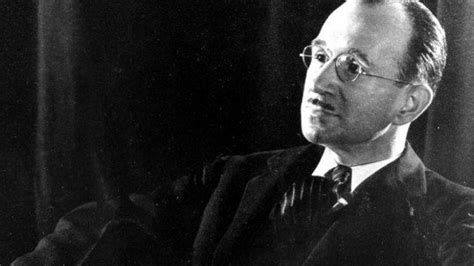A Quote by Harry Stack Sullivan
Related Quotes
Artists use frauds to make human beings seem more wonderful than they really are. Dancers show us human beings who move much more gracefully than human beings really move. Films and books and plays show us people talking much more entertainingly than people really talk, make paltry human enterprises seem important. Singers and musicians show us human beings making sounds far more lovely than human beings really make. Architects give us temples in which something marvelous is obviously going on. Actually, practically nothing is going on.
Perhaps extreme danger strips us of all pretenses, all ambitions, all confusions, focusing us more intensely than we are otherwise ever focused, so that we remember what we otherwise spend most of our lives forgetting: that our nature and purpose is, more than anything else, to love and to make love, to take joy from the beauty of the world, to live with an awareness that the future is not as real a place for any of us as are the present and the past.
What's been important in my understanding of myself and others is the fact that each one of us is so much more than any one thing. A sick child is much more than his or her sickness. A person with a disability is much, much more than a handicap. A pediatrician is more than a medical doctor. You're MUCH more than your job description or your age or your income or your output.
That odd capacity for destitution, as if by nature we ought to have so much more than nature gives us. As if we are shockingly unclothed when we lack the complacencies of ordinary life. In destitution, even of feeling or purpose, a human being is more hauntingly human and vulnerable to kindnesses because there is the sense that things should be otherwise, and then the thought of what is wanting and what alleviation would be, and how the soul could be put at ease, restored. At home. But the soul finds its own home if it ever has a home at all.
Harry Potter is one boy in a long line of mythical heroes who have reminded the human race that we are so much more than we think we are, so much more powerful than we seem to know. Jesus said that we would someday do even greater works than He; should we not take Him at His word? And should not 'someday' be today? It's time for us to start working miracles, if indeed we have the capacity within us to do so.
To the distracting occupations belong especially my lecture courses which I am holding this winter for the first time, and which now cost much more of my time than I like. Meanwhile I hope that the second time this expenditure of time will be much less, otherwise I would never be able to reconcile myself to it, even practical (astronomical) work must give far more satisfaction than if one brings up to B a couple more mediocre heads which otherwise would have stopped at A.
It is an odd fact of evolution that we are the only species on Earth capable of creating science and philosophy. There easily could have been another species with some scientific talent, say that of the average human ten-year-old, but not as much as adult humans have; or one that is better than us at physics but worse at biology; or one that is better than us at everything. If there were such creatures all around us, I think we would be more willing to concede that human scientific intelligence might be limited in certain respects.
The gratification of curiosity rather frees us from uneasiness than confers pleasure; we are more pained by ignorance than delighted by instruction. Curiosity is the thirst of the soul; it inflames and torments us, and makes us taste every thing with joy, however otherwise insipid, by which it may be quenched.




































